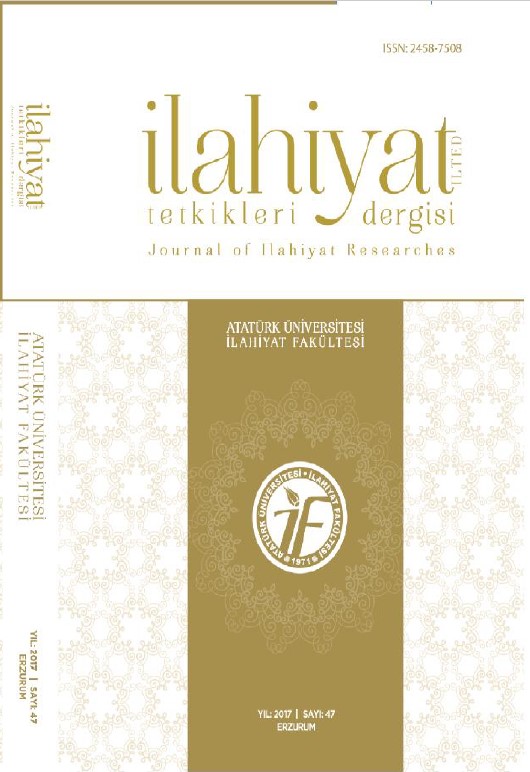Jules Simon’da Tanrı’nın Kavranılamazlığının Felsefi Savunusu
The Philosophical Argument of God's Incomprehensibility in Jules Simon
Author(s): Muharrem ŞAHİNERSubject(s): 19th Century Philosophy, Philosophy of Religion
Published by: Atatürk Üniversitesi İlahiyat Fakültesi
Keywords: Philosophy of Religion; Jules Simon; God; Eternity; Incomprehensibility;
Summary/Abstract: The existence and characteristics of God have been of the most important discussion topics in the history of philosophy, and philosophical discourses about the existence of the Holy have reached a wide range of discourses in a dialectical line. The arguments for the existence of God also require a holistic perspective in the context of his relationship with the universe and the possibility of man to know God. The first criticism that Simon makes to the evidence in question is that they are already conceivable by very few people who do not need God to be proven to them. Secondly, the contradictions that will arise from explaining subjects such as God's attributes and creation with some analogies and the anthropomorphic understanding of God are the compulsions that contribute to the atheist thought. Nevertheless, Simon speaks of two conclusions of the God proofs: The unity of the existence of God and the ultimate point of all evidence is the concept of eternity. As a result, Simon criticizes his philosophical attitude of explaining everything by emphasizing the limits of the human mind and tries to show that knowing what we cannot comprehend is a kind of philosophical knowledge.
Journal: İlahiyat Tetkikleri Dergisi
- Issue Year: 2021
- Issue No: 55
- Page Range: 277-300
- Page Count: 24
- Language: Turkish

